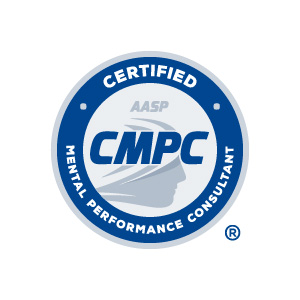Mental Performance Coaching Process
How Mental Training Works
Mental Performance Coaching Process
Rapport, Roles and Expectations
- Establish and maintain rapport with the individual/s.
- Explain the role of a mental strength coach within the specific setting or system with individual/s and important others.
- Explain what is expected of the individual.
- Explain/describe the mental training process.
- Explain your mental strength coaching philosophy (e.g. holistic approach)
- Discuss and/or clarify the mental training process (e.g., Informed consent, documentation, contract, confidentiality, limits of availability) to help individual/s make informed decisions.
Assessment
- Obtain and summarize individual, team/group and organizational assessment data and information pertaining to performance via interviews, direct observation, the administration of questionnaires and standardized tests, collaboration with other professionals, etc. Assessment includes but is not limited to:
- Observing performance
- Obtaining a sport history
- Obtaining collateral assessment data and information
- Determining important factors in the performance environment (e.g., organizational characteristics (leadership, culture, dynamics), relationships with coaches)
- Identifying personal characteristics (e.g., family, SES, social values, personality, cognitive ability, motivation)
- Identifying perceived individual and organizational strengths and weaknesses
- Obtaining a health and injury history
- Identifying significant life events that may be affecting performance
- Identifying/assessing individual/s beliefs and biases about sport psychology
Goals, Outcomes and Planning
- Integrate and evaluate assessment data within a theoretical framework of performance excellence, evidence-based practice and professional judgment.
- Collaborate with the individual/s, and when appropriate, members of the performance team (e.g., coaches, colleagues, and other professionals) to formulate a plan to determine and prioritize goals and desired outcomes.
- Identify personal and systemic resources and barriers related to the achievement of goals and desired outcomes.
Implementation
- Implement a performance plan that looks at how mental skills potential blend together to form greater mental competencies [e.g. Focus (mindfulness, self-talk, concentration)]
- Implement a performance plan combining awareness, education and action to facilitate achievement of desired outcomes.
- Implement a performance plan providing and obtaining feedback as the individual/s work toward achieving the goals and desired outcomes.
Evaluation
- Assess progress, reset goals and/or revise implementation strategies and techniques either as part of a continuing process/relationship (e.g., on continuing basis, yearly, season-by-season) or as part of assisting individual/s in making progress towards established goals.
- When possible and appropriate, obtain feedback from individual/s on consultant effectiveness.
- When ethically appropriate, obtain feedback from coaches/leadership regarding performer utilization of mental skills training and mental strength coach effectiveness.
- Consolidate progress and conclude the professional relationship when appropriate based upon people working with and/or professional opinion.
Professional Issues
- Engage in activities to maintain and enhance professional competence.
- Practice in a manner consistent with applicable laws, regulations and the AASP Code of Ethical Principles and Standards.
- Engage in a process of self-reflective practice that includes a process of continuous learning.
- Recognize their own biases, stereotypes and misconceptions to prevent them from interfering with their relationships with individual/s.
- Recognize the limits of their knowledge and skills and accordingly refer individuals to, or seek collaboration with other qualified professionals, as necessary.
- Engage in activities that enhance their knowledge and skills that relate to their supervision of professional colleagues seeking certification.

0

0





Comments :